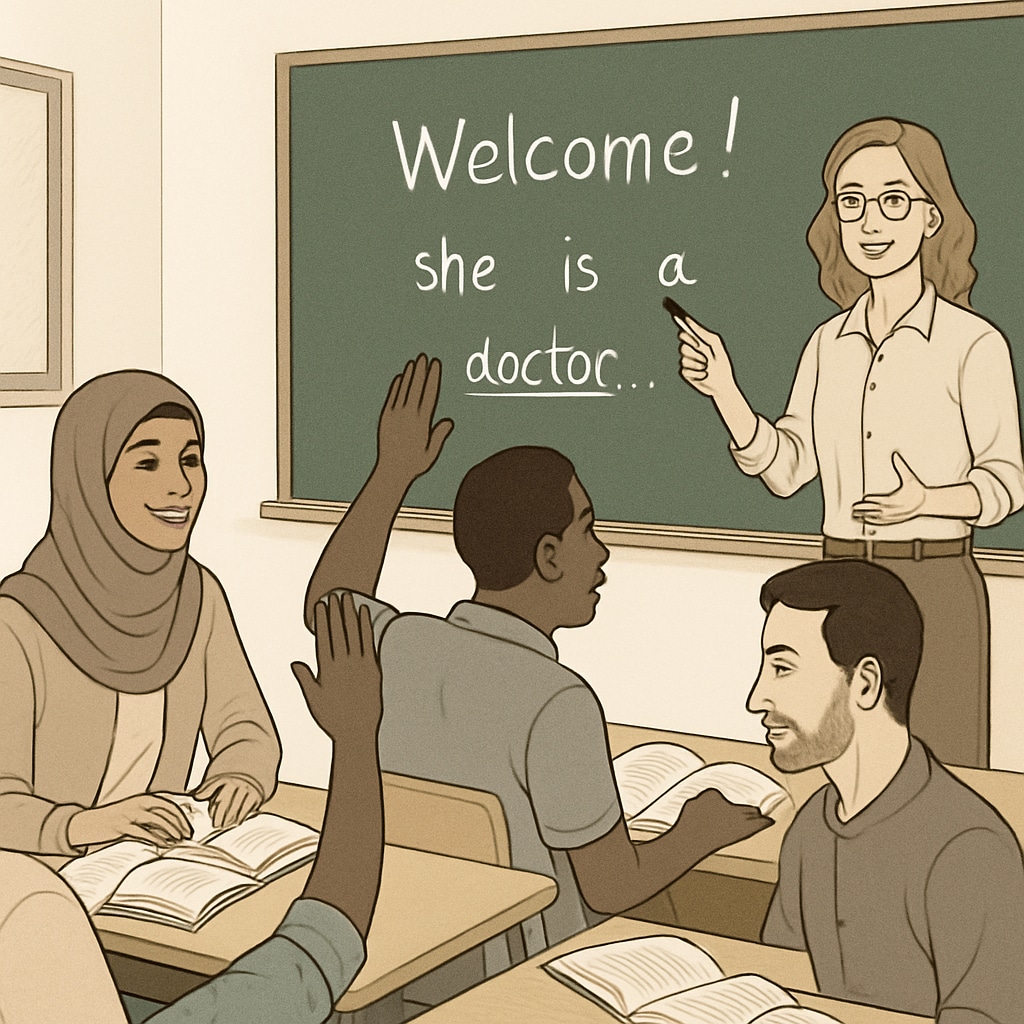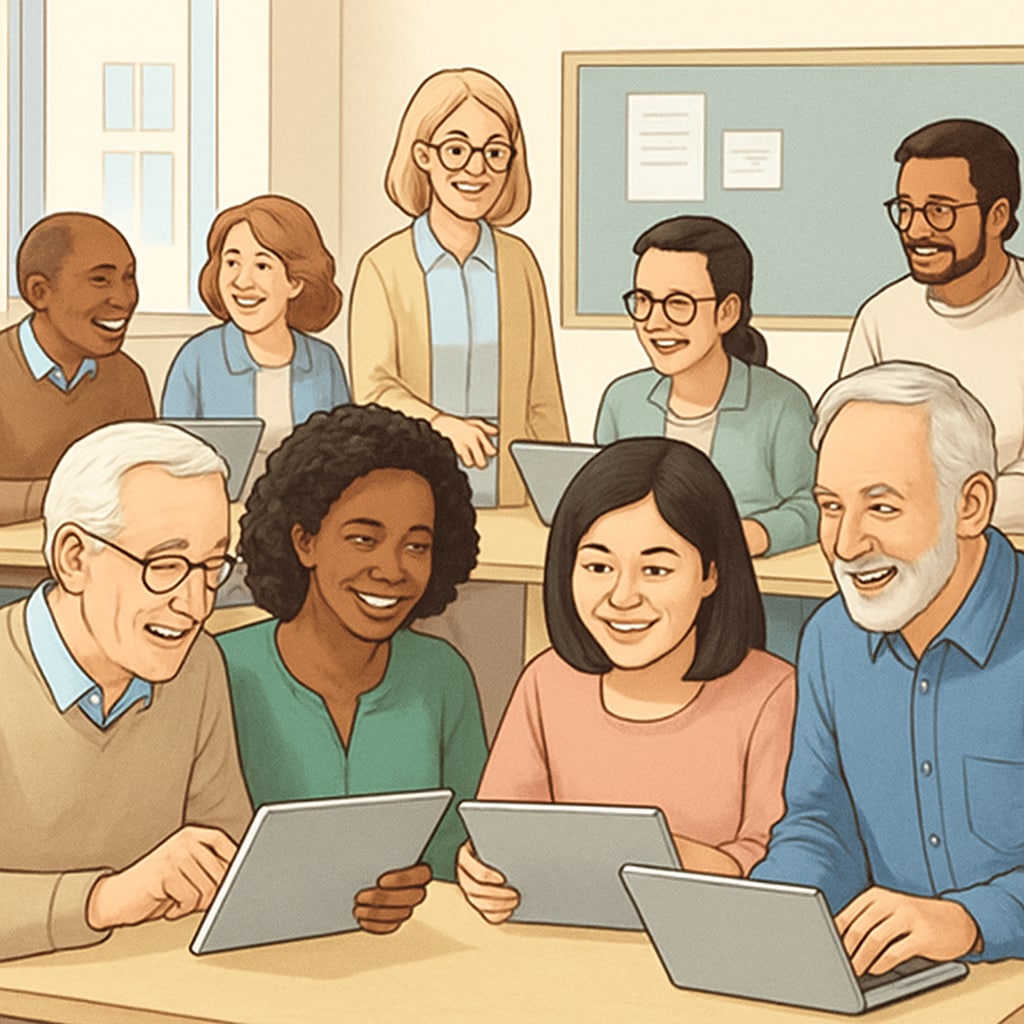Adapting to a new cultural environment can be a challenging experience for adult immigrants. Access to adult education, cultural adaptation, and basic knowledge can play a crucial role in helping individuals navigate the complexities of Western societies. From understanding societal norms to acquiring fundamental skills in language, mathematics, and science, building a solid educational foundation is essential for integration and success.
This article explores the importance of addressing educational gaps for adult immigrants, the challenges they face in cultural adaptation, and effective strategies to establish comprehensive learning programs tailored to their needs. By focusing on practical solutions and fostering a supportive learning environment, we can empower immigrants to contribute meaningfully to their new communities.
The Importance of Adult Education in Cultural Integration
Adult education serves as a bridge between immigrants and their host societies, providing the tools necessary to understand and participate in daily life. For example, language proficiency is often the first hurdle for many immigrants. Learning the local language not only facilitates communication but also helps individuals access essential services, such as healthcare and employment opportunities.
- Language Skills: Courses focusing on conversational and professional language use are critical.
- Cultural Competence: Understanding social norms, traditions, and etiquette reduces cultural misunderstandings.
- Practical Knowledge: Basic financial literacy, digital skills, and healthcare access are often included in foundational programs.
Education on Britannica highlights the transformative role of adult learning in improving social mobility and community engagement. Therefore, tailored educational programs are instrumental in making this transition smoother.

Addressing Knowledge Gaps: Challenges and Solutions
Immigrants often encounter significant knowledge gaps stemming from differences in educational backgrounds, societal expectations, and professional requirements. These gaps can hinder their ability to fully integrate into Western cultural and professional environments.
For example, a professional from a non-Western country may struggle to adapt to Western workplace standards due to unfamiliarity with organizational hierarchies or teamwork practices. Similarly, immigrants with limited formal education may find it difficult to grasp the basics of personal finance or civic responsibilities.
To address these challenges:
- Customized Learning Plans: Programs should assess individual needs and design curricula that cater to varying levels of education and experience.
- Flexible Scheduling: Many adult learners balance work, family, and education. Evening or weekend classes can accommodate their schedules.
- Community Support: Peer groups and mentorship programs can provide emotional and practical support during the learning process.
Additionally, leveraging technology, such as online courses and mobile applications, can make education more accessible. According to Wikipedia’s entry on adult education, digital platforms are increasingly being used to bridge learning gaps for adult learners worldwide.

Practical Strategies for Building Comprehensive Education Systems
To create an inclusive and effective educational system for adult immigrants, it is essential to combine traditional teaching methods with modern, adaptable approaches. Below are some strategies:
- Public-Private Partnerships: Collaboration between governments, non-profits, and private organizations can ensure adequate funding and resources.
- Cultural Sensitivity Training: Educators should be trained to understand the unique challenges faced by immigrant learners.
- Outcome-Based Learning: Programs should focus on measurable outcomes, such as increased employment rates or higher civic participation.
By implementing these strategies, we can create a supportive ecosystem that not only addresses educational needs but also fosters long-term cultural adaptation and social integration.
In summary: The journey of cultural adaptation begins with education. By providing adult immigrants with access to language, practical skills, and cultural understanding, we empower them to build fulfilling lives in their new homes while enriching the communities they join. Adult education is not just a tool for learning; it is a gateway to opportunity, inclusion, and mutual understanding.
Readability guidance: This article maintains short paragraphs and uses lists to summarize key points. Transition words like “therefore,” “for example,” and “in addition” ensure smooth reading. Passive voice and long sentences are minimized for clarity.


